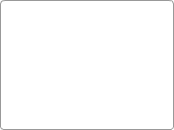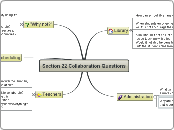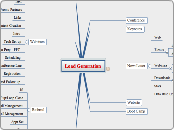REALTIME AND EMBEDDED SYSTEM
Real-time vs. General-purpose
Real-time systems differ from general-purpose systems in two important ways:
- They are much more specific in their applications.
- The consequences of their failure are more drastic.
Example
EMBEDDED SYSTEM
Embedded control systems:
– automotives
– Robots
– Aircrafts
– Mobile Phone app …
– Medical devices
REALTIME
Real-time Systems
Real-time monitoring systems
Signal processing systems (e.g., radar)
On-line transaction systems
Multimedia (e.g., live video multicasting)
Embedded systems
Meaning
Embedded systems are defined as electronic subsystems immersed in a larger physical system (e.g., a car, an airplane, a washing machine, a cellular phone) that implement a given functionality (i.e. a set of tasks) using one or more software-programmable device (e.g. a microcontroller, a Digital Signal Processor).
Real time system
Most famous real time scheduling algorithm are RM and EDF.
single processor, periodic tasks, preemption
RM: static priorities based on period.
EDF: dynamic priority based on deadline.
Advantage is that schedulability analysis based only on utilization constraints.
Issues in Real-Time Computing
Task scheduling
-Real-time operating systems
-Real-time programming languages
-Real-time databases
-Fault tolerance
Real-time communication
Real-Time Applications can be model as a set of tasks, where each task can be classified according to its timing requirements (Hard or Soft)
Task : a sequence of similar jobs
Sporiodic tasks
Aperiodic but minimum interarrival time is known
Every sporadic job always arrives at its minimum interarrival time
Treat as periodic tasks
Aperiodic tasks
Tasks that execute at arbitrary times.
A aperiodic task is a task that requests resources during non-deterministic request periods. No limitations on interarrival times
have hard deadlines
Each task is associated with a specified deadline, which represents the time necessary for it to complete its execution
associated with Event-Driven processing
e.g. Ejection of a pilot seat when the command is given to the navigation system in a jet fighter
Periodic tasks
Tasks that execute at regular intervals of time( repeat regularly).
A periodic task is a task that requests resources at time values representing a periodic function. That is, there is a continuous and deterministic pattern of time intervals between requests of a resource.
have hard deadlines
A real-time periodic task must complete processing by a specified deadline relative to the time that it acquires the processor
Real-Time system Classification
Soft real-time systems
- A soft real-time system is one where the response time is normally specified as an average value. This time is normally dictated by the business or market.
- A single computation arriving late is not significant to the operation of the system, though many late arrivals might be.
Hard real-time systems
- A hard real-time system is one where the response time is specified as an absolute value.
- A system is called a hard real-time if tasks always must finish execution before their deadlines or if message always can be delivered within a specified time interval.
Meaning
"those systems in which the correctness of the system depends not only on the logical result of the computation, but also on the time at which the results are produced”









